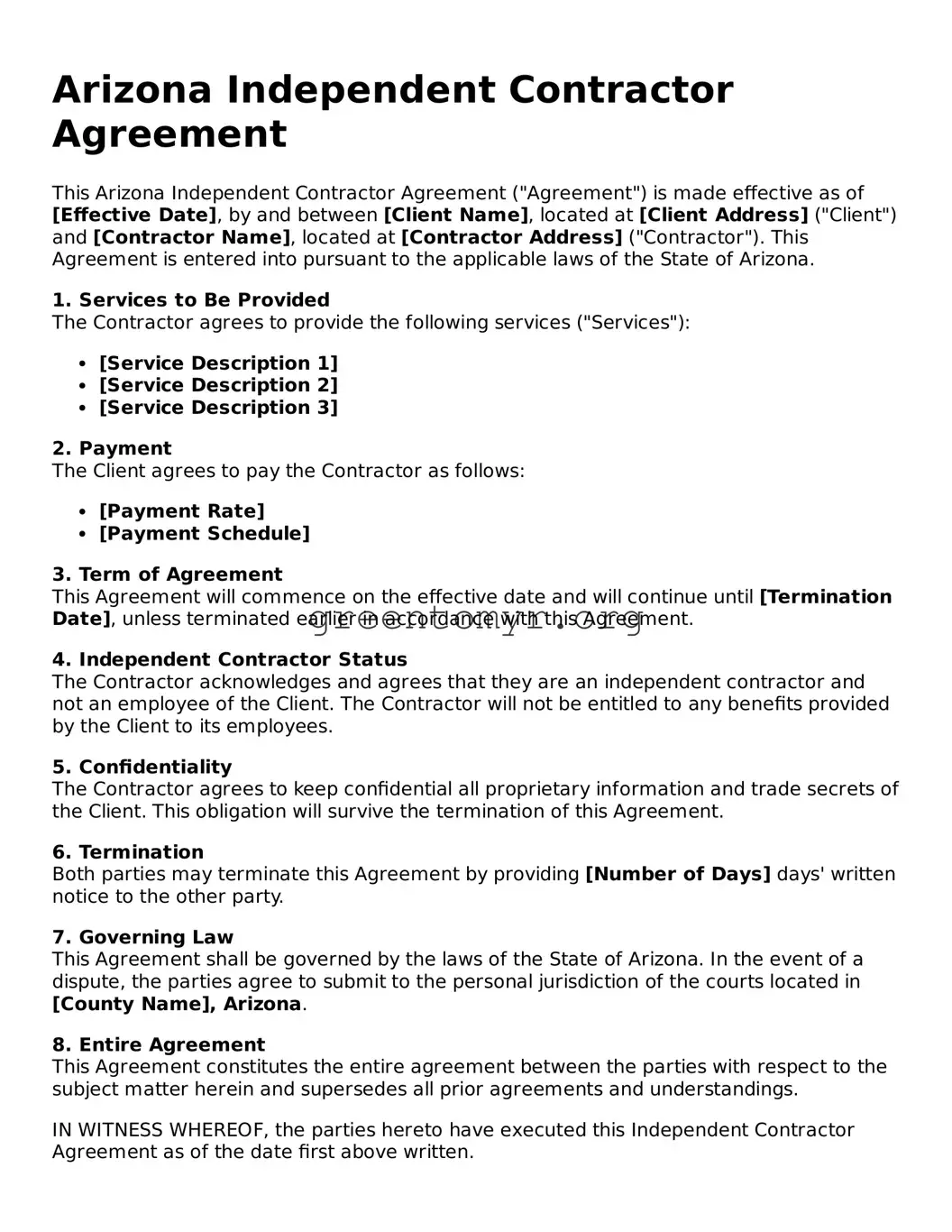Arizona Independent Contractor Agreement
This Arizona Independent Contractor Agreement ("Agreement") is made effective as of [Effective Date], by and between [Client Name], located at [Client Address] ("Client") and [Contractor Name], located at [Contractor Address] ("Contractor"). This Agreement is entered into pursuant to the applicable laws of the State of Arizona.
1. Services to Be Provided
The Contractor agrees to provide the following services ("Services"):
- [Service Description 1]
- [Service Description 2]
- [Service Description 3]
2. Payment
The Client agrees to pay the Contractor as follows:
- [Payment Rate]
- [Payment Schedule]
3. Term of Agreement
This Agreement will commence on the effective date and will continue until [Termination Date], unless terminated earlier in accordance with this Agreement.
4. Independent Contractor Status
The Contractor acknowledges and agrees that they are an independent contractor and not an employee of the Client. The Contractor will not be entitled to any benefits provided by the Client to its employees.
5. Confidentiality
The Contractor agrees to keep confidential all proprietary information and trade secrets of the Client. This obligation will survive the termination of this Agreement.
6. Termination
Both parties may terminate this Agreement by providing [Number of Days] days' written notice to the other party.
7. Governing Law
This Agreement shall be governed by the laws of the State of Arizona. In the event of a dispute, the parties agree to submit to the personal jurisdiction of the courts located in [County Name], Arizona.
8. Entire Agreement
This Agreement constitutes the entire agreement between the parties with respect to the subject matter herein and supersedes all prior agreements and understandings.
IN WITNESS WHEREOF, the parties hereto have executed this Independent Contractor Agreement as of the date first above written.
Client Signature: ___________________________
Date: [Date]
Contractor Signature: ______________________
Date: [Date]
